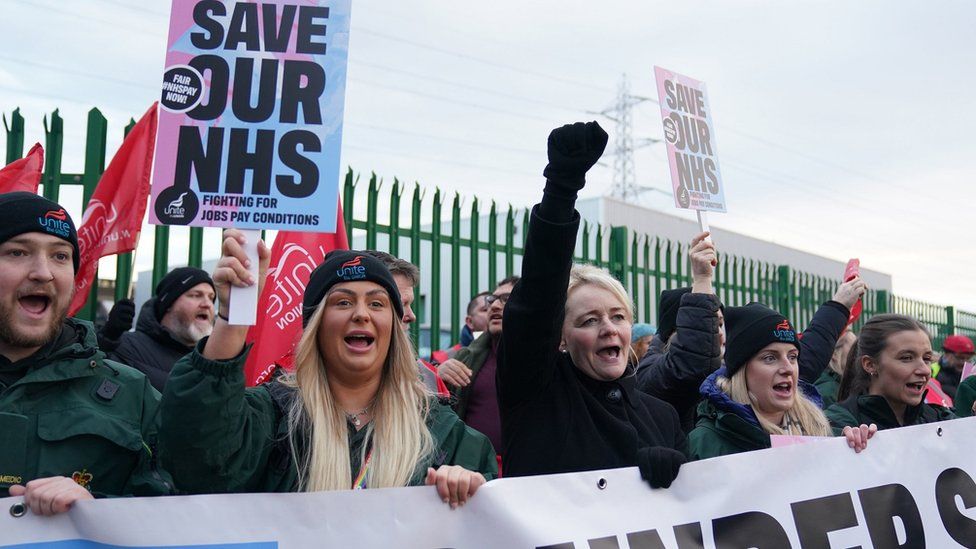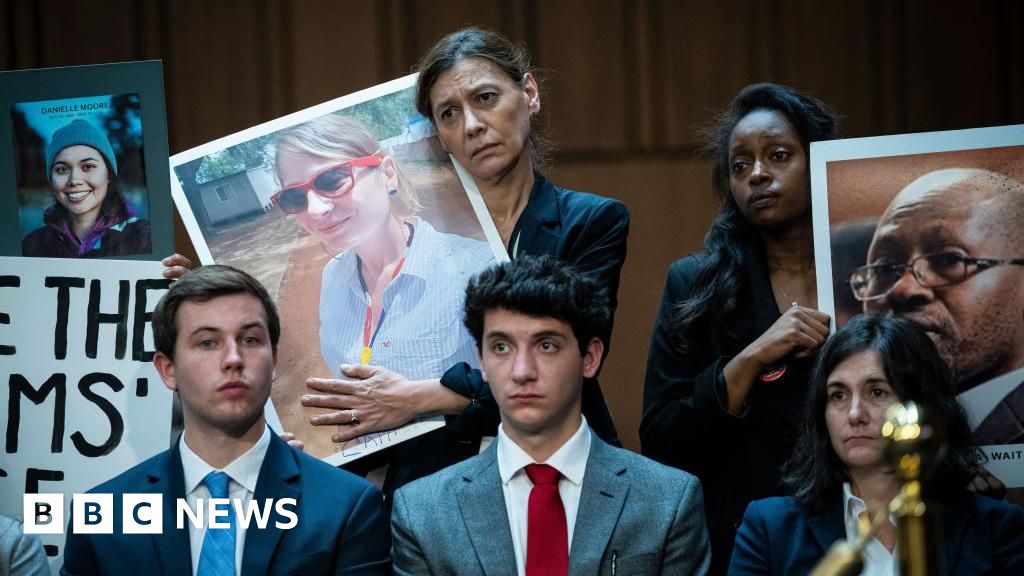ARTICLE AD BOX
 Image source, PA Media
Image source, PA Media
Ambulance workers are among those striking this winter
By Faisal Islam
Economics editor
The head of the UN's agency for workers' rights has denied the organisation backs the UK's tough new anti-strike laws.
It comes after UK ministers repeatedly suggested the International Labour Organisation (ILO) supported government plans to enforce "minimum service levels" during public sector strikes.
The new laws are meant to protect the public from the impact of walkouts.
But unions have called them "undemocratic, unworkable and illegal".
The US labour secretary Marty Walsh has also told the BBC he disagrees with the idea of "minimum service agreements" for public sector workers, and suggested they may be detrimental to workers.
The UK's Strikes (Minimum Service Levels) Bill will give the government the power to unilaterally assert levels of service provision from striking workers in certain sectors, and could lead to workers losing their jobs or unions being sued.
It follows a wave of industrial action by frontline public sector workers such as ambulance staff, firefighters and railway workers, which the government says puts the public at risk.
UK ministers, including the prime minister, have repeatedly said that the ILO supports these "minimum service agreements" around the world.
But when asked about this at the World Economic Forum (WEF) in Davos, Gilbert Houngbo, the WEF's director general, said that while the organisation did not want to interfere in national discussions, "social dialogue" between employers and employees was especially important during the current economic downturn.
Mr Houngbo added that he was "very worried about workers having to accept situations" due to being faced with the threat of losing their jobs.
He also told the BBC that British trade unions were able to file a complaint with the ILO to ascertain whether the UK was breaching international worker rights laws. The ILO "has been in discussions with the trade unions" over this, he said.
Hearing these answers from the ILO, US labour secretary Marty Walsh asked the BBC to ask him the same question about supporting "minimum service agreements".
Mr Walsh replied: "No. I don't know about the legislation. But I certainly will work with the ILO, [the United States] is a board member of the ILO as well… I would not support anything that would take away from workers."
Mr Walsh is the first former union leader to serve as US labour secretary for 45 years, and is President Biden's Cabinet minister responsible for workers' rights.
This autumn he spent 20 hours negotiating to avoid the prospect of a strike on freight train services.
After some unions did not back a negotiated settlement over a lack of sick pay, President Biden did ban their strike, imposing the settlement. Many individual US states also maintain restrictions on US public sector strikes.
The UK government has said it is introducing its anti-strike bill "to ensure that striking workers don't put the public's lives at risk and prevent people getting to work, accessing healthcare, and safely going about their daily lives".
Earlier in January, Prime Minister Rishi Sunak told parliament "the International Labour Organisation (ILO) supports minimum service levels… they're present in France, in Italy, in Spain".
And Business Secretary Grant Shapps added Germany to this list, also claiming the ILO "says that minimum service levels are a proportionate way of balancing the right to strike with the need to protect the wider public".
Watch: Business Secretary Grant Shapps defends anti-strikes bill
However, in a recent blog for the London School of Economics, Dr Ewan McGaughey, an expert on labour law at King's College London, said that these claims were untrue.
"In France, the so called 'minimum service' laws simply require 48 hours' notice for transport unions to strike, or five days for health workers. This is purely so that employers can find other staff to cover... There is no sacking or suing," Dr McGaughey wrote.
He added that rules in Italy, Spain and Germany were also less stringent than the UK's, and that the ILO did not "support" minimum service levels as Mr Sunak had claimed.
"It has never said a plan like [the UK's new bill] is a 'proportionate' balance. It requires that for any minimum service levels at all, unions 'must be able to participate' in setting them".
Unions are in talks about legal challenges to the UK's new bill, based on human rights law, but may also seek a judgement over whether the legislation conflicts with ILO labour rights conventions.
The post-Brexit trade deal with the EU mandates the UK and EU "respect" the ILO's conventions, including on freedom to strike.
A spokesman for the Department for Business, Energy & Industrial Strategy said YouGov polling suggested broad public support for the new laws, with 56% of those surveyed backing the government.
He added that the ILO recognised minimum service levels were a sensible solution to protect the public from serious consequences of strikes.
"We must keep the public safe, which is why we are introducing minimum service and safety levels across a range of sectors to ensure that lives and livelihoods are not lost," the spokesman said.

 2 years ago
50
2 years ago
50








 English (US) ·
English (US) ·